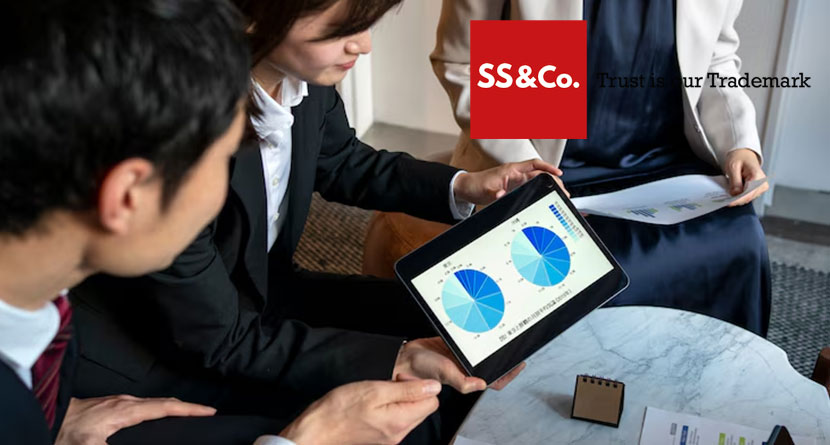Choosing the right financial free zone is a critical strategic decision for any investment manager or financial institution entering the UAE market. Understanding the nuances between Abu Dhabi Global Market and the Dubai International Financial Centre is very important. When you decide to launch an investment fund ADGM, you are likely to benefit from a fast, innovative environment that supports new structures and fintech experimentation. On the other hand, a license in DIFC financial services offers unrivaled brand prestige and a deep network of global banks and institutional investors. In either case, partnering with the best chartered accountants in Dubai ensures that your setup, tax planning, and ongoing compliance remain efficient, cost-effective, and fully aligned with your strategic goals.
Understanding Abu Dhabi Global Market
Abu Dhabi Global Market is a financial free zone purposely built to operate on Al Maryah Island in Abu Dhabi. Since October 2015, ADGM has developed into an international hub for assets management, fintech, and sustainable finance. Upon the setup of an investment fund ADGM, you will operate under common law, with three autonomous bodies-the Financial Services Regulatory Authority (FSRA), ADGM Courts, and Registration Authority-working in your favor. FSRA’s RegLab regulatory sandbox has supported dozens of experiments in fintech and DeFi, while ADGM Courts digitally first disposition disputes remotely, with e-filing and virtual hearings to expedite resolution. For many fund sponsors, establishing an ADGM investment fund structure translates into fast-track approvals, reduced fee structures, and a regulatory partner willing to negotiate tailored frameworks for new asset classes.
The Appeal of DIFC Financial Services
Since 2004, the Dubai International Financial Centre (DIFC) has been the financial hub of the emirate. DIFC is located in the center of Dubai and hosts over 5,000 companies, including global banks, insurers, asset managers, and law firms. Regulation of a license under DIFC financial services falls under the Dubai Financial Services Authority (DFSA), which applies a risk-based supervisory approach in line with the best practices in London, New York, and Singapore. The DIFC ecosystem consists of the FinTech Hive accelerator, bespoke legal and dispute-resolution systems, and strategic alliances with Dubai ports and airports. By opting for DIFC financial services, you obtain brand credibility and easier access to international markets in Africa, South Asia, and Europe.
Flexibility Versus Predictability
The regulatory styles of FSRA and DFSA differ in ways that directly affect fund sponsors. FSRA in ADGM adopts a collaborative, innovation-friendly stance. When you submit an application for an investment fund ADGM, you often engage in a pre-application phase where regulators guide you on structuring novel products. This approach reduces uncertainty and can shorten approval time to as few as four to six weeks. In contrast, DFSA in DIFC applies a tried-and-tested, risk-based model. Applications for DIFC financial services licenses typically take six to ten weeks, but the clear, globally recognized rules appeal to firms seeking regulatory predictability. In a McKinsey-style assessment, an investment fund ADGM is ideal if you prioritize agility, while DIFC financial services suit organizations that value established frameworks.
Fund Structures and Licensing Timelines

Both ADGM and DIFC permit exempt funds, qualified investor funds, and retail funds. However, key differences influence how quickly and cost-effectively you can launch. When you form an investment fund ADGM, you benefit from digital applications, fixed fee schedules, and umbrella fund options that allow multiple strategies under one license. Many emerging managers lean toward ADGM to roll out sub-funds within weeks. By contrast, firms targeting a DIFC financial services license face higher setup costs, more stringent governance requirements, and a longer review cycle. Although the DFSA’s depth of guidance can justify the extra expense, the streamlined process for an investment fund ADGM often makes it the natural choice for lean teams.
Cost Considerations and Time to Market
Time to market and upfront costs weigh heavily in the decision between ADGM and DIFC. When you launch an investment fund ADGM, you can realistically expect to complete registration, licensing, and initial governance steps in under two months at transparent, tiered fee levels. This speed enables fund managers to seize market opportunities without delay. Conversely, applying for DIFC financial services typically involves in-person meetings, additional legal documentation, and processing times that can stretch to ten weeks. For firms with sizable budgets and a long-term view, the premium is acceptable given DIFC’s global reputation. Yet many sponsors choose an investment fund ADGM solution because it balances cost efficiency and rapid deployment so effectively.
Tax Benefits and Corporate Incentives
Both ADGM and DIFC offer identical core incentives: zero percent corporate and income tax for qualifying activities, full foreign ownership, unrestricted capital repatriation, and exemption from foreign exchange controls. Nonetheless, DIFC financial services companies often enjoy wider recognition of UAE double tax treaties, which facilitates international structuring and repatriation strategies. Meanwhile, an investment fund ADGM can leverage the same treaty network but may still need to prove its standing in certain jurisdictions. By engaging the best chartered accountants in Dubai, you ensure optimal utilization of free-zone benefits and clarity on the UAE’s evolving corporate tax provisions. Expert advisors help you structure both investment fund ADGM and DIFC financial services entities in ways that maximize treaty relief and minimize effective tax rates.
Legal Environment and Dispute Resolution
Although both the ADGM and DIFC courts function under common law, they differ in scope. For instance, ADGM Courts are 100 percent digital, allowing parties to file documentation, monitor hearings, and even appear virtually from anywhere within the jurisdictional area of those courts. This technology empowers those courts to fit like a glove for pioneering funds likely to face innovative legal challenges related to tokenized assets or algorithmic trading. Conversely, firms engaged in financial services within the DIFC have access to a court system that comes with deeper history and more established case law, along with knowledgeable judges.
Geographic Access and Investor Networks
Geography plays a pivotal role in structuring your fund. ADGM sits at the nexus of Abu Dhabi’s sovereign wealth ecosystem, including ADIA and Mubadala. Fund managers establishing an investment fund ADGM gain proximity to these major institutional investors and can more easily navigate local capital allocation cycles. DIFC serves as a global junction for attracting rich individuals, family offices, and multinational corporations, is where the DIFC financial services license is used. This is an international clientele with banks and brokers and other service providers co-located there for many years. The two jurisdictions might offer good attractions on their own merits; however, how you structure your investor targeting-either sovereign funds or the rest of global capital-usually determines the difference in the use between the two vehicles-an investment fund ADGM or DIFC financial services.




